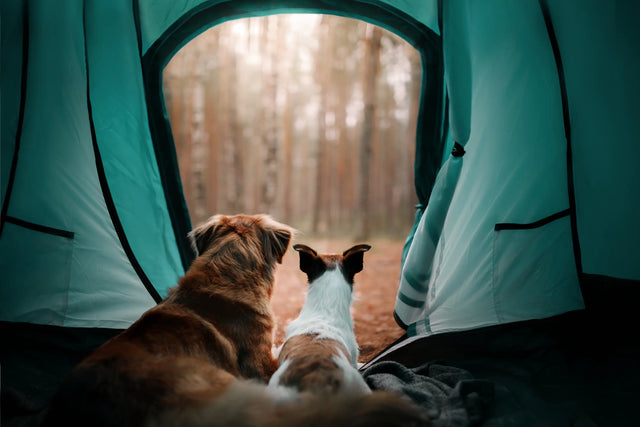Discover Effortless Camping with Pop-Up Tents
The allure of a lightweight, hassle-free camping solution is a need for outdoor enthusiasts who camp in diverse terrains. With their innovative design and user-friendly setup, pop-up tents have become essential to camping gear in recent years.
However, pop-up tents have benefitted traditional, off-the-beaten-track campers and have also become essential in various settings, including festivals, beaching, and sporting events.
This article examines pop-up tents, highlighting their significance for campers, hikers and others seeking simplicity and efficiency.
Simplified Camping for Everyone
Instead of the traditional tent setup, which often requires a time-consuming assembly, pop-up tents are designed to be erected in seconds. This instant shelter capability allows campers to easily set up their base on almost any terrain, making it a popular choice for those who want to maximise their time outdoors.
The Epitome of Convenience: Pop-up Tents
These tents are compact and lighter in weight than traditional tents, which also means they are easy to transport. Thus, campers can enjoy the comfort and mobility they need throughout their outdoor adventures.
Specific designs are suited to accompany hikers, allowing them to conserve their energy and agility, making it an indispensable tool to create a pop-up shelter on the trail.
Tailored for the Modern Camper
The development of pop-up tents has been significantly influenced by campers’ need for tents to embrace more lightweight and less complex set-up features.
Pop-up tents feature:
- Superior durability and weather resistance, featuring advanced waterproofing, wind resistance, and UV protection.
- Shelter reliability, ready to withstand the elements, whether in the backcountry or at the beach.
Choosing the Ideal Pop-Up Tent
Selecting the right pop-up tent for camping requires consideration of several factors to match your outdoor lifestyle:
- Weight and pack size: Lightweight and sturdy tents are ideal for comfortable shelter without extra burden.
- Ventilation: Good ventilation is crucial for comfort in different climates.
- Capacity: Tent capacity should meet your requirements for occupants and gear. Solo campers may prefer a one-man, ultra-lightweight, and compact model, while a two- to four-person tent with room dividers may be more suitable for families and groups.
- Additional Features: Key features such as waterproofing, UV protection, and the quality of materials should be considered. Some tents are designed for specific environments to provide superior performance in different conditions.
Beyond the Trails: Camping Tent in Action
While hikers may first come to mind, pop-up tents have found their place in a variety of settings:
- Music Festivals and Outdoor Events: They provide quick, temporary shelter for attendees, offering a place to rest and enjoy personal space.
- Beach Days: Pop-up tents serve as a haven from the sun, with designs focused on ventilation and sun protection.
- Sporting Events: This is the go-to for spectators needing a base to support athletes, store gear, or simply take a break.
- Emergency and Relief Operations: Their quick deployment makes pop-up tents essential in providing immediate shelter during crises.
- Photography and Filming: A mobile “room” to store equipment, aiding outdoor shoots.
- Road Trips and Hikers: Offering a convenient solution for travellers seeking a quick setup shelter at day's end.
Setting Up and Maintaining Your Pop-Up Tent
Effortless Setup
The hallmark of a pop-up tent is its effortless setup. After a day of outdoor exploring, a complicated tent assembly is one of the last things one would want to deal with.
With a pop-up tent, the setup involves:
- Simply remove the tent from its bag, let it pop up, and unfold automatically.
- Securing it with stakes takes mere minutes.
This efficiency saves time and reduces the stress often associated with camp setup.
Maintaining Your Tent
Keep your camping tent in optimal condition by:
- Dry it thoroughly before storing it to prevent mould and mildew.
- Clean dirt or debris from the fabric and zippers to avoid wear and tear.
- Store the tent in a cool, dry place away from direct sunlight.
- Regular maintenance, such as repairing minor damages, will extend the tent's life and make it a reliable shelter for many adventures.
- Ensure that the camping tent is clean and dry before packing it away, and inspect it regularly for wear and tear to prevent significant issues.
- Proper storage in a cool, dry place between hikes will preserve the tent's integrity, ensuring it remains a dependable shelter for countless adventures.
Naturehike Africa: Your Adventure Companion
Pop-up tents are popular among campers; however, outdoor campers do not exclusively use them. Their diversity and easy-to-use capability are some of their best-selling factors. They are designed to meet the demands of anyone needing convenient shelter.
Visit Naturehike Africa to view our pop-up tents in stock.
Choose your style, add to cart, and begin your adventure knowing you have secure, convenient shelter in your backpack.



0 Comments
There are no comments for this article. Be the first one to leave a message!